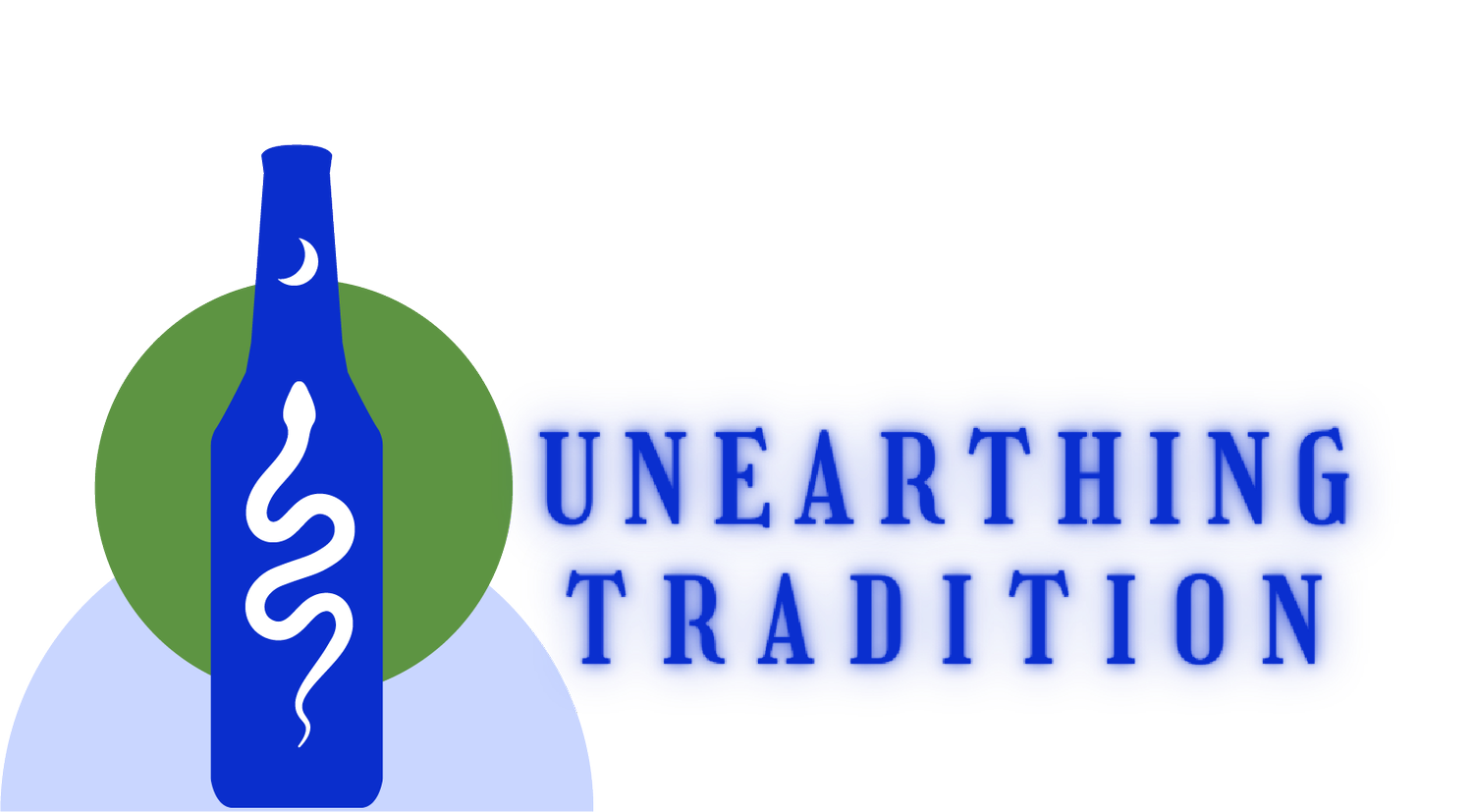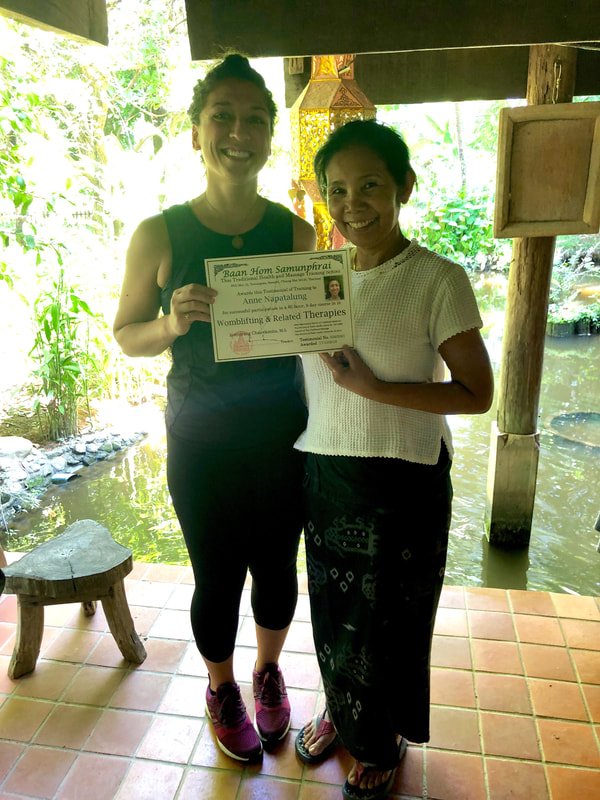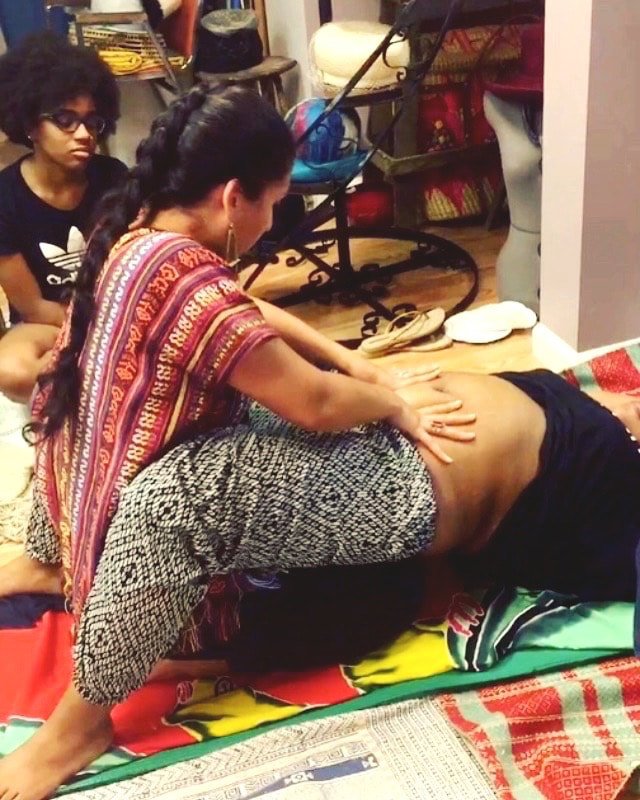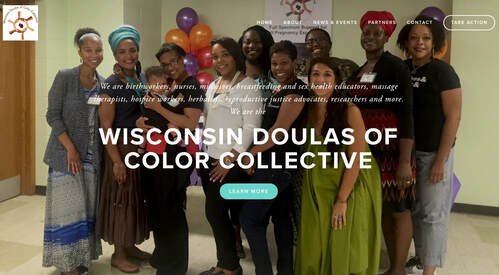Through Their Eyes: Doulas from around the world**
A doula's viewpoint is informed by the families we serve, the medical teams we interact with, and the larger dynamics of birthing politics. Deeply Rooted is excited to continue a series offering doulas from around the world a platform to share experiences,"Through Their Eyes". This time we're going to the Midwest.
Anne Napatalung has stepped into a lineage of healing work and knowledge that pays homage to the many beloveds who have supported her along the way from the U.S. South, Midwest, and Northeast, to Phatthalung Thailand and Ramallah Palestine. With a commitment to prison abolition, Anne spends a lot of time reading about violence, isolation, and mourning, but doula work is what gives her the opportunity to stay open, practice tenderness, and be intentional about love and connection.
Tell us about your path into the birth world? What are your expertises? Who is your clientele?
I came into the birth world through reading about doulas in Minnesota prisons. This was my entry point into thinking about what it meant to give birth—and to attempt to be vulnerable in one’s body—under conditions of injustice, fear, and violence, and under conditions where love is not meant to exist. I’ve completed formal doula trainings such as ICTC and DONA, but my framework as a doula is really shaped by teachers throughout my life, including Homprang Chaleekanha of Baan Hom Samuphrai, Panquetzani Ticitl of Indigemama, Venice Williams of Alice’s Garden, my father and my Memaw.
I’m trained in using plant medicine with an emphasis on womb care, postpartum care, abortion and miscarriage, and elder and hospice care. I’m trained in bringing plants into the body in all kinds of ways from herbal compresses and steams to teas and foods. I’m still learning, experimenting, creating, listening. I’m here for queering intimacy and friendship, as well as plant and bodily borders. I’m here for healing forms of touch and pleasure in relation with others. I’m increasingly in tune with healing through movement and sound—the frequencies of music and sound baths, yoga, pole dancing, belly dancing, twerking.
From herbal medicines to fermentation workshops to wombwork to doula work, my clientele tend to be women and femmes of color who are interested in healing themselves and their communities, and who are concerned with broader questions of justice. It’s important to me that these folks have space to surrender at the bodily level, especially when it can feel like we’re fighting against something all the time. Also, some of my longest term supporters are men of color in the U.S. South, who are wonderfully gentle and are looking for ways to heal themselves and their loved ones.
Where are you most connected to the birth world? Describe the current climate.
I'm the Director of National Resources for the Wisconsin Doulas of Color Collective, where I get to work with doulas who I’ve known since my first formal doula training. Many of us met at an ICTC training in 2014, which felt like sanctuary in the midst of a very white birth world. We had a shared concern for the markedly high infant and maternal mortality rates for Black, Latinx, Indigenous, and immigrant communities in Wisconsin and the Midwest—really just a shared knowing that race mattered when it came to birth. Racism, colonialism, heterosexism, classism, ableism, anti-trans and anti-Muslim sentiment—all of these things shape opportunities to birth, live, and die on your own terms and with dignity. They also shape who has access to caring for and supporting people’s bodies through transitions, whether that be a doula, a hospice worker, a partner, or a doctor.
The whiteness of the birth world in Wisconsin is an extension of a longer legacy of Western medicine targeting and delegitimizing Indigenous and Black midwives and healers in the U.S. and other traditional medicines across the globe. But as birthworkers of color in the U.S., we step into an even longer legacy of healing, of looking to plants and land as allies, of collectively loving one another through struggle and through violence. Trump is violent. Prisons are violent. Capitalism is violent. Borders are violent. We need to be looking to Indigenous water protectors and midwives for frameworks of guidance. We need to be looking to Black women who have mapped frameworks for healing and reproductive justice—from Harriet Tubman and Fannie Lou Hamer to Marsha P. Johnson and Assata Shakur. As a doula and second generation Asian American, it has also been critical for me to look to elders and immigrants whose understanding of food, medicine, and bodies has given me a different way to think healing, the world, and the limitations and violences of Western models. I’ve felt traumatized by most interactions with doctors in the U.S., and I’m grateful for elders who have offered me alternative ways to care for communities around me as well as my own body.
What are some regional challenges you face as a doula, midwife, or otherwise?
I’ve spent most of the last decade in the U.S. Midwest and Northeast. Resources and access to care are key. The most vulnerable folks—the people who need doulas and midwives the most—often can’t afford or don’t have access to them. The doulas and midwives who want to care for underserved communities are often in precarious situations themselves, and are often doing so much other community work. People get stretched thin. Burnout is real. Reimbursement can be a battle even in cases where it is promised. The nonprofit and medical industrial complex, whiteness, and birthwork as a field are entangled in that they want to do everything for midwives, doulas, and care workers of color except pay them for their time, knowledge, and labor. The political climate overall has been grossly anti-woman, anti-trans, anti-poor, anti-Black, anti-immigrant. Indigenous, homeless, refugee, disabled, and incarcerated communities are often left out of these conversations all together. This has material consequences for people’s lives.
Regional triumphs?
I’m excited by the relationships formed and forming between doulas of color, local politicians, community based organizations, activists, and community members across the state of Wisconsin. A network of folks came together around Medicaid reimbursement for doulas and midwives, as well as anti-shackling legislation in the prison. It’s also been amazing to meet so many doulas and midwives of color across the Midwest, and now across the country, who are doing the work day in and day out. People have always been doing this work without certification or recognition or reimbursement. It’s important to think about burnout and unpaid labor here, but also all of these beautiful ways of living and caring for each other that are happening, that grant proposals and data will never account for. Networks of mothering and chosen families, communal care practices, sharing bodywork, growing food, working with the land, intergenerational learning—these are triumphs.
What are some of the resources for pregnant families in your area?
I’ve spent much of my time as a doula in Wisconsin. In this area I’d say:
African American Breastfeeding Alliance of Dane County Wisconsin Guild of Midwives
Wise Women Gathering Place (Green Bay)
Prism Birth Services (Racine/Kenosha)
Helping Hands (New Berlin)
The Birthing Project (Kenosha/Racine)
Mama Aicha (Chicago)
Supreme Doulas (Chicago)
For Thai Traditional medicine making, Asian International Market in Milwaukee (ask for Thoy!) grows and brings in beautiful herbs and plants.
Additionally, groups across the globe have helped me better understand what it means to support families including:
In addition to community organizations and networks in Palestine who visit and feed and care for families of those martyred and incarcerated.
What do you need to better support the communities you serve?
As a group, resources. Not “inclusion.” Not “diversity.” Not more “research” done on and about communities of color, queer folks, poor folks—while not paying them for their time and reaffirming what data already shows. Give people who are already working in communities the resources they need to do the work, to get certified, to serve families—and get out of the way.
From Unearthing Tradition To You: I'm so immensely grateful to you my friend. You are a gem with so much brilliance to offer this world. Thank you for sharing your gifts with us!
Anne Napatalung is a PhD student of Feminist and Critical Race and Ethnic Studies at UC Santa Cruz. To stay connected follow Anne @memesapothecary on Instagram.





